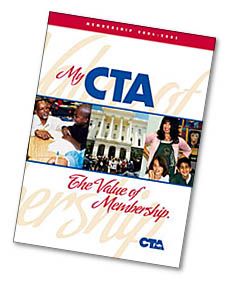The U.S. Supreme Court will hear oral arguments in Friedrichsv. California Teachers Association in the fall. The 2013 lawsuit on behalf of Orange County teacher Rebecca Friedrichs, nine other teachers, and a professional association of Christian educators, takes aim at the constitutionality of California’s “agency shop” law, which forces public-school educators to pay dues to a teachers’ union, whether they want to or not. Friedrichs is now front-and-center in a concerted legal effort to constrain the outsize political influence of teachers’ unions in California and around the United States. “This case is about the right of individuals to decide for themselves whether to join and pay dues to an organization that purports to speak on their behalf,” said Terry Pell, president of the Washington D.C.-based Center for Individual Rights, the public-interest law firm that is representing Friedrichs. “We are seeking the end of compulsory union dues across the nation on the basis of the free-speech rights guaranteed by the First Amendment.”
Earlier this year, the teachers’ unions were hit with yet another lawsuit challenging the current compulsory dues-paying mandate. StudentsFirst, the Sacramento-based activist group founded by former D.C. schools chancellor Michelle Rhee, filed Bain v. California Teachers Association, et al. in federal district court in April on behalf of four CTA members. The case challenges a union rule regarding members who refuse to pay the political portion of their dues. While teachers don’t have to join a union as a condition of employment in California, they must pay dues to the union anyway. Most join and pay the full share, which typically runs over $1,000 a year. But according to the CTA, about 29,000 — or 10 percent — of its active teachers opt out of paying the political or “non-chargeable” part, which brings their yearly expenditure down to around $600. However, to become “agency fee payers,” those teachers must resign from the union and relinquish many perks they had as full dues-paying members.
Unlike the plaintiffs in Friedrichs, the Bain teachers want to remain in the union. But they don’t think they should be effectively forced out of it and lose certain benefits because they’re unwilling to fund the leadership’s political agenda. Some teachers object that union political spending goes in one direction only: leftward. CTA spends millions each year on controversial, non-education-related liberal causes, such as establishing a single-payer health care system, expanding the government’s power of eminent domain, instituting same-sex marriage, and blocking photo ID requirements for voters — while giving virtually nothing to conservative candidates or causes.
The teachers argue that this violates their constitutional right to free speech. Affected teachers lose insurance benefits along with the right to vote for their union representative and contracts. They are barred from sitting on certain school committees. They also lose legal representation in employment disputes and at dismissal hearings, as well as compensation for death and dismemberment, and disaster relief. The plaintiffs in Bain are asking why teachers who pay for union representation won through collective bargaining should lose out on those benefits simply because they refuse to pay for the union’s political campaigns.
That question has generated a great number of half-truths, lies, and general non-answers from the media and union leaders alike. For example, EdSource’s John Fensterwald wrote, “Both the CTA and CFT are obligated to negotiate contracts dealing with pay, benefits and working conditions on behalf of union and non-union teachers.” That’s true; all teachers do become “bargaining unit members,” but only because the unions insist on exclusive representation. The unions would have a better case if they would forego their monopoly status and free dissenting teachers to negotiate their own contracts. A Los Angeles Times editorial claimed the case at its core represents “an attack on the power of any public employee union to engage in politics.” Nonsense. IfBain is successful, unions would remain free to “engage in politics”; they would simply have fewer coerced dollars to spend. Alice O’Brien, general counsel for the NEA, said in a statement, “The Bain lawsuit attacks the right of a membership organization to restrict the benefits of membership to those who actually pay dues.” More nonsense. The teacher-plaintiffs are all dues payers and would remain dues payers if their case is successful.
If the Supreme Court rules in favor of the teachers in the Friedrichs case, it’s unclear what may become ofBain. The two cases have a key difference: Friedrichs claims that all union spending is political, and therefore non-member teachers should not be forced to contribute any dues at all. Bain would help teachers who want union benefits but don’t care for union politics. A favorable outcome in Bain could lead to a more flexible membership scenario, whereby teachers could still be union members, with all the benefits of membership, but not be forced to pay for what has been traditionally regarded as political spending. In any event, the teachers’ unions’ heavy-handed tactics seem to be losing force, and their days of unbridled power may be numbered. That can only be good news for those for whom the unions’ presence in education has become an albatross—teachers, kids, parents, and taxpayers alike.







